Jenson Button: 'There were days he was untouchable'
- Published
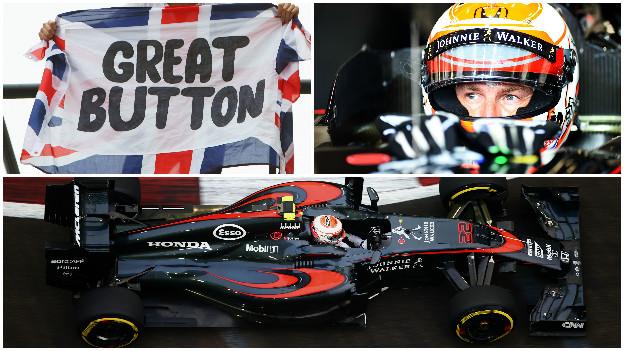
Jenson Button is one of an elite handful of drivers who have emerged as true superstars of Formula 1 in the last decade.
Along with Fernando Alonso, Lewis Hamilton and Sebastian Vettel, Button has been a member of a group who were at the forefront of what in future years will be looked back on as a golden era of F1 talent.
He and outgoing McLaren chairman Ron Dennis were at pains to emphasise that his decision not to race next season, made public at the Italian Grand Prix in September, was not a retirement announcement. But ahead of the final race of the season in Abu Dhabi he admitted he expects it to be his last race.
Either way, his absence from the track next year will deprive the sport of an exceptional driver and an intelligent and thoughtful character.
Classic victories - and not just in the wet
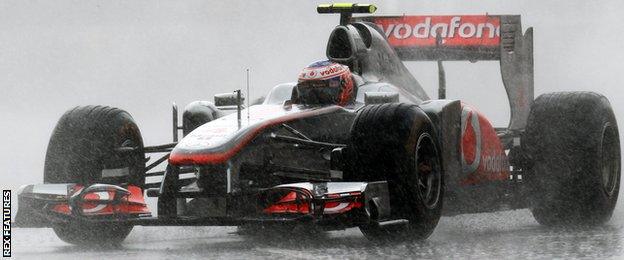
Button won one of the most memorable races in history, victorious in Canada in 2011 after being last at one point
Out of the car, Button is urbane and eloquent. Good-looking and charismatic, he is a marketing person's dream, and has a ready wit that can edge into sarcasm if he is impatient or uncomfortable with a situation.
In the car, some of Button's wins have been among the greatest there have ever been, in some of the most exciting races.
The one that will spring first to the minds of many was his thrilling victory in the 2011 Canadian Grand Prix,, external when he climbed from last to first in 30 spellbinding laps, taking the win when Vettel half-spun away the lead under pressure from the rapidly closing Button on the last lap.
That was one of several victories that have marked Button out as one of the all-time greats in mixed conditions.
His very first win - for which he had to wait 113 races - was achieved like that, in Hungary in 2006, external, the only success of an otherwise dismal dalliance with F1 in the 'noughties' by Honda, with whom Button is now working again following their return as McLaren's engine supplier.
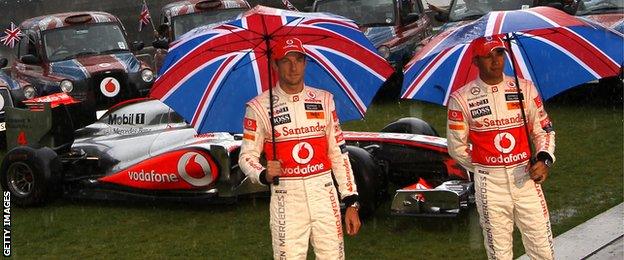
Button regularly got the better of Hamilton when they were team-mates
There were two similar victories in his first year at McLaren in 2010, in Australia and China, in the second of which he beat team-mate Hamilton in equal cars in a straight battle in damp conditions over the final 17 laps.
In the dry, too, Button could be untouchable, as proved by another two outstanding performances.
At Spa in 2012, he made team-mate Hamilton - and everyone else - look ordinary. On pole by nearly a second, he simply drove off into the distance in the race.
Then there was Button's own favourite - Japan in 2011. With Hamilton nowhere, Button beat Alonso's Ferrari and Vettel's Red Bull in a straight fight, on perhaps the greatest driver's track of them all and in a country which he loves.
A long and winding road
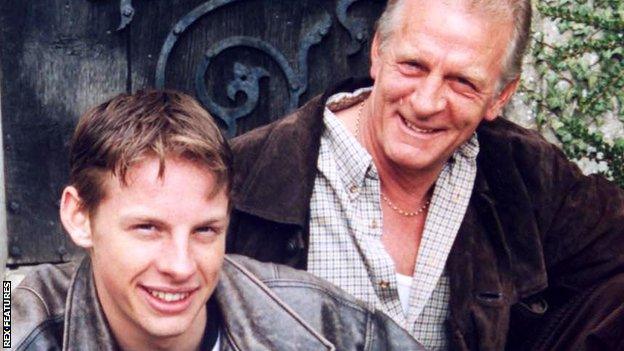
As a 14-year-old, with father John - who attended most races with him
Racing was in Button's blood, but the route that made him world champion was a long and sometimes difficult one.
His father John, a successful rallycross driver in the 1970s, named Jenson after his friend and rival, the Dane Erling Jensen, the spelling changed to prevent his son being confused with a famous road car of the era.
His parents were divorced when he was young, and the young Jenson lived with his mother. John bought him a kart when he was eight and Jenson immediately took to it, rising quickly through the junior ranks.
Father and son were extremely close. John was an ever-present throughout his son's career, and a jovial and immensely popular figure in the F1 paddock. When he died suddenly in January 2014, Jenson was heartbroken, and admitted that his first year racing without his beloved "Papa Smurf" was very difficult at times.
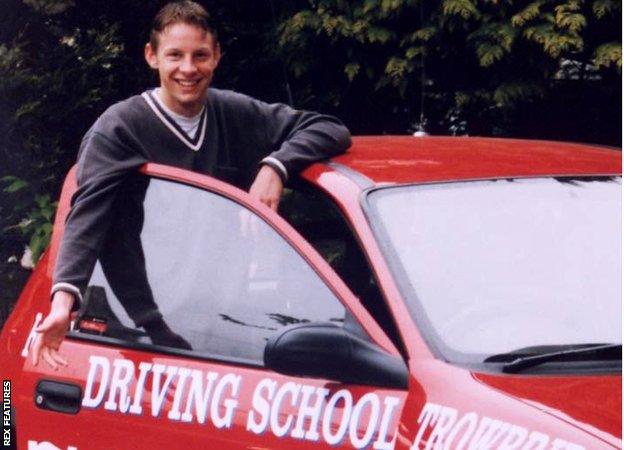
Button in 1997 having passed his driving test at the second attempt
Shortly before his 20th birthday Button did two F1 tests - one for the now defunct Prost team and a second for Williams, who were so impressed they awarded him a drive in 2000.
Button impressed greatly through that year and, although he was replaced by the Colombian Juan Pablo Montoya for 2001, as had always been the plan, he was signed up by Benetton.
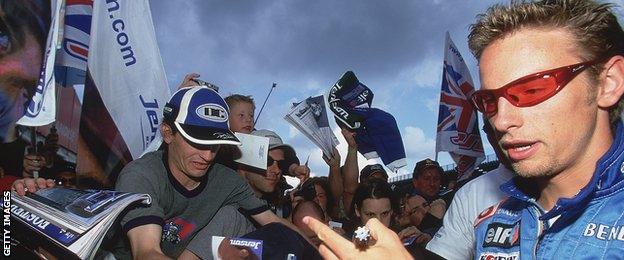
Bono? No, it's "playboy" Button as a Benetton driver in 2001
Button struggled at first and his new team were unimpressed, the team boss Flavio Briatore dismissively labelling him a "playboy" who was being distracted by the trappings of too much wealth too young.
But after joining the BAR team in 2003 Button established himself as a leading figure. He drove well in 2004 to be the highest driver in the championship behind the dominant Ferrari team, and finally won his first grand prix in 2006 after BAR had been bought by Honda.
A 'lucky' title? Not a bit of it
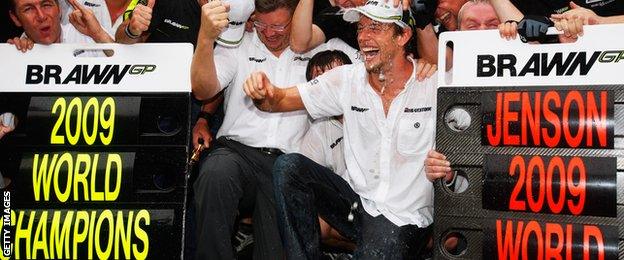
To win the 2009 championship, Button came from 14th on the grid at the Brazilian GP to finish fifth
Button almost did not get the chance to prove just how good he was. When Honda pulled out of F1 at the end of 2008, his career was hanging by a thread.
Thankfully for Button, team boss Ross Brawn managed to salvage both team and driver over the winter, reconstituting the team in his own name, persuading Mercedes to give him engines to put in a car that benefited from the controversial 'double diffuser', and started 2009 as the sport's dominant force.
Button's critics have written this off as a 'lucky' title, saying he had the best car for the first half of the season and then very nearly threw the title away in the second by tightening up when he realised what he had to lose, and having too many bad weekends.
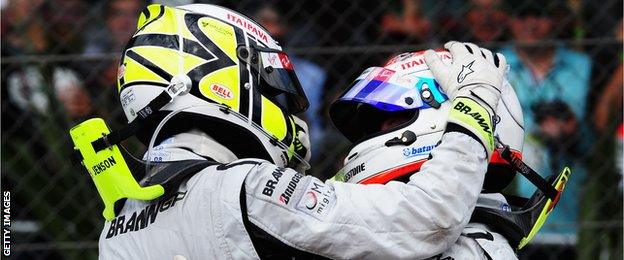
Button and Barrichello were team-mates in 2009 when their privateer Brawn team unexpectedly won the title
But there was nothing 'lucky' about his six wins in seven races at the start of the season.
His team-mate, Rubens Barrichello was a very good driver in his own right, and the Brazilian never got close to beating Button in that phase.
And while the Brawn certainly started the season as the best car, it did not hold that honour for that long before the others - particularly Red Bull - started to catch up.
Button did have a bit of a wobble through the second half of the season, but in the circumstances it was understandable.
He knew the title was on, and also that Red Bull were coming on strong and that Brawn did not have the money to keep up on development. The team's future remained uncertain, and for all Button knew at the time this was his one and only chance.
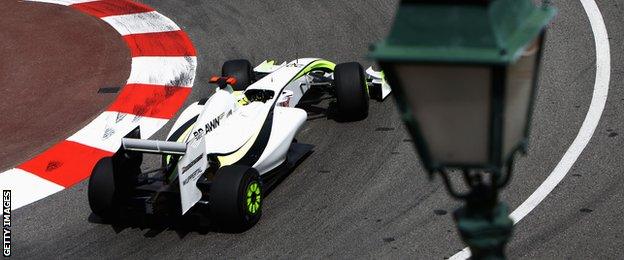
He also won in Monaco during that title-winning season, memorably shouting: "Monaco, baby - yeahhhh!" in the style of Austin Powers over team radio
Button was fighting a rear-guard action and if sometimes in qualifying he did not get the best out of the tyres and car, he always raced well, usually coming through the field and scoring good points.
And when the pressure was properly on in the penultimate race of the season in Brazil, after he had messed up and qualified 14th, Button gave himself a good talking to in the hotel that night and came back the next day and drove a quite superb race to fifth to clinch the championship in style.
At his best, brilliant
Button's is a complex ability, and not one without weaknesses. But at his best, when conditions are right, he is as good as anyone.
Some will scoff at that statement, which only goes to show that, even after a world championship and 15 wins, Button is still underrated to a degree.
But anyone who can spend three years as Lewis Hamilton's team-mate and end it with the record Button did is clearly something special - notwithstanding the fact Hamilton had what can only be described as an annus horribilis in 2011, when personal problems spilled over into his sporting life.
Button out-scored Hamilton on total points over that period, won eight races to Hamilton's 10, was around 0.2secs a lap slower than him on average in qualifying and proved a constant thorn in his side.
Button rates Alonso, who has been his team-mate for the last two years, even more highly than he does Hamilton and the Spaniard has definitely had a small edge in their private battle - and a large advantage when the car has been difficult.
But, again, Button has more than held his own against another all-time great, and flat beaten Alonso on a few occasions.
A rare and sensitive talent
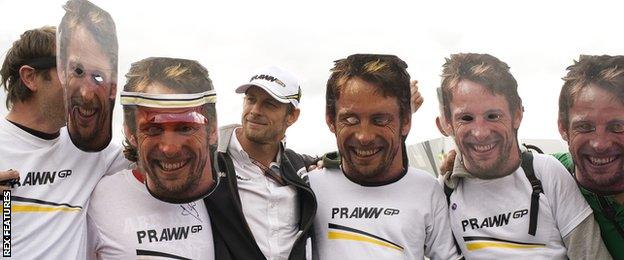
Button is a popular figure in the sport - perhaps sometimes too popular
So how good was Button?
Other than in very specific circumstances, he was not the fastest driver out there - although, as his records against Hamilton and Alonso show, he was not far off.
He was not the best racer - although his overtaking moves were clinically beautiful in their calculation; always clean, nearly always decisive.
And he was far from the most complete - he was too sensitive for that. That sensitivity was his biggest flaw but it was also what made him special, a physical connection to the messages being delivered to him by the car.
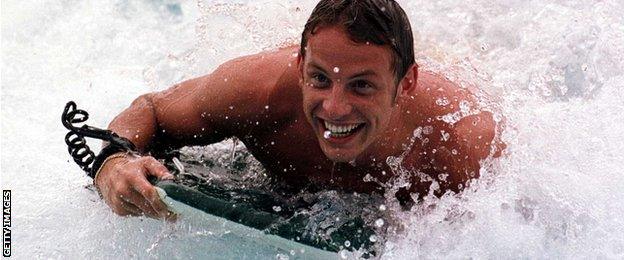
Master of the wet: Button has lived in Monaco for many years
Button has a silky touch with a racing car, a way of putting it on the limit without it appearing dramatic, a smoothness in the fashion of Jackie Stewart or Alain Prost, to whose driving Button's has been rightly compared.
He had what Barrichello describes as "a great feeling for what the car is doing".
"A smooth driver has a good feeling for what the back end is going to do," Barrichello says. "It is almost as if things happen in slow motion. That is why he is so good in mixed conditions. For some people, things happen too fast, but a driver like JB can see ahead what the car is going to do."
This is why Button excels in the sort of half-wet races such as those mentioned above. As long as the car is behaving the way he likes, he has a sort of sixth sense for how much grip the track is going to have and by extension how hard he can push.
He has a deftness of touch in such conditions that can make him untouchable, even if the likes of Hamilton and Alonso unquestionably have more rounded and adaptable talents, and are generally that crucial bit quicker.
His special skill explains why Button has always been so good on tracks where the limitation on grip is at the front of the car, not the rear - Silverstone, Spa, Suzuka, Shanghai and Melbourne, for example. His feel for that limit is up there with the very best.
However, it is his sensitivity that lets Button down at other times.
He likes his cars to behave in a certain way
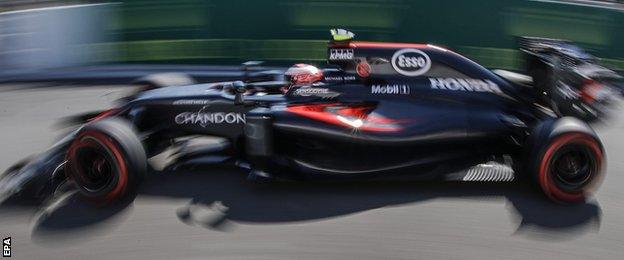
Button's driving style is similar to that of four-time champion Alain Prost
He wants a strong rear end that is stable on corner entry and on which he can lean with confidence on the exit. So reliant is he on having the car do what he wants, so aware of its behaviour, that if things are not to his liking, he tends to struggle. As one of his former engineers puts it: "When he doesn't have the confidence in the car, he loses a lot of his speed."
How many times have we heard Button talk about balance problems, or locking brakes, over the years? As Barrichello says: "JB has a great feeling for what the car is doing. Sometimes this is great but sometimes it can damage your confidence, as with a little less grip you don't push to the limit."
This is exactly what has happened on the occasions when he has been furthest from Alonso.
The thing about Button, though, is there is no artifice. He is well aware of this weakness and more than happy to admit it. He knows there are drivers who are more adaptable than him, less vulnerable to changes in the car's behaviour.
But so, too, does he know that there are days when he is untouchable, when his unique talents make even the greatest of his rivals look ordinary. That's how good Button could be.
- Published24 November 2016
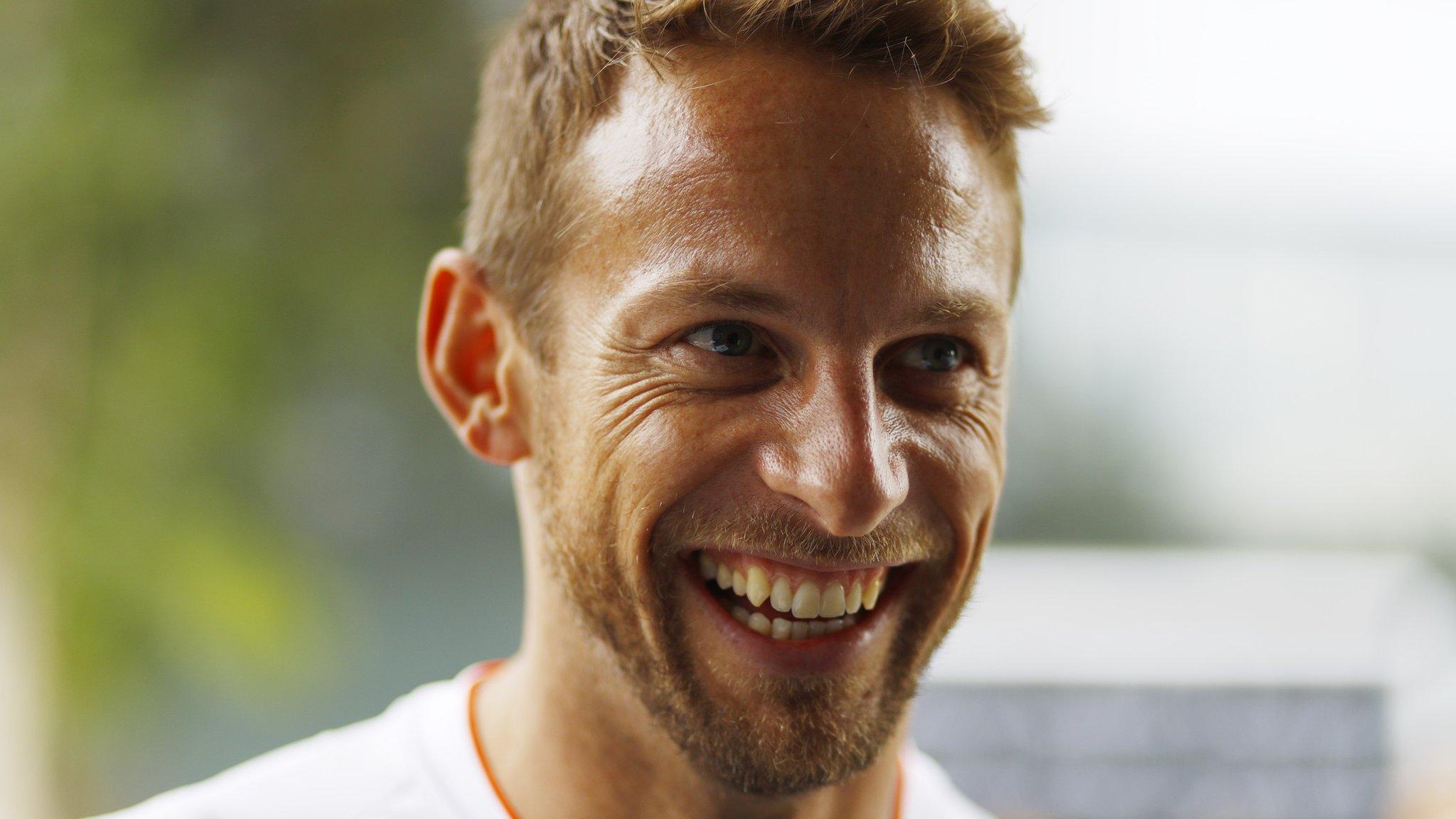
- Published24 November 2016
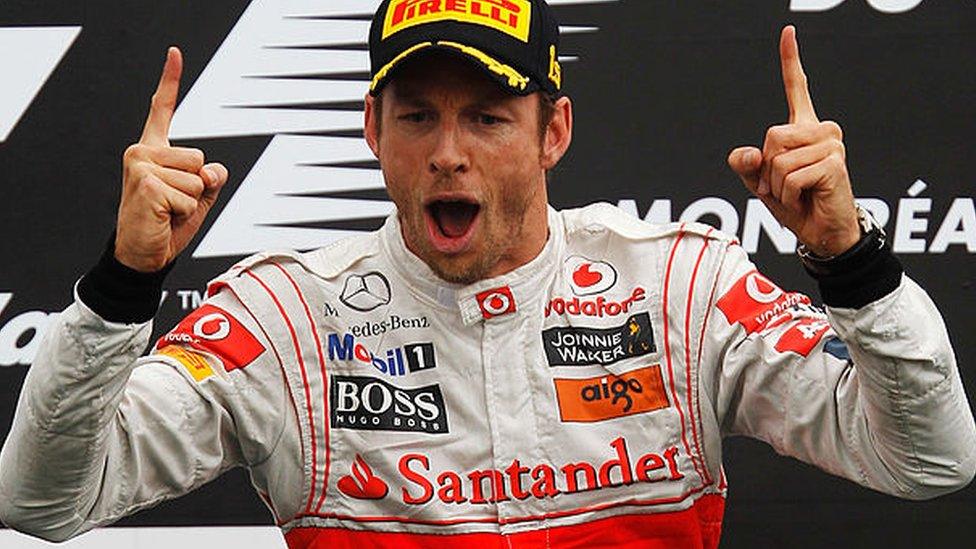
- Published3 September 2016
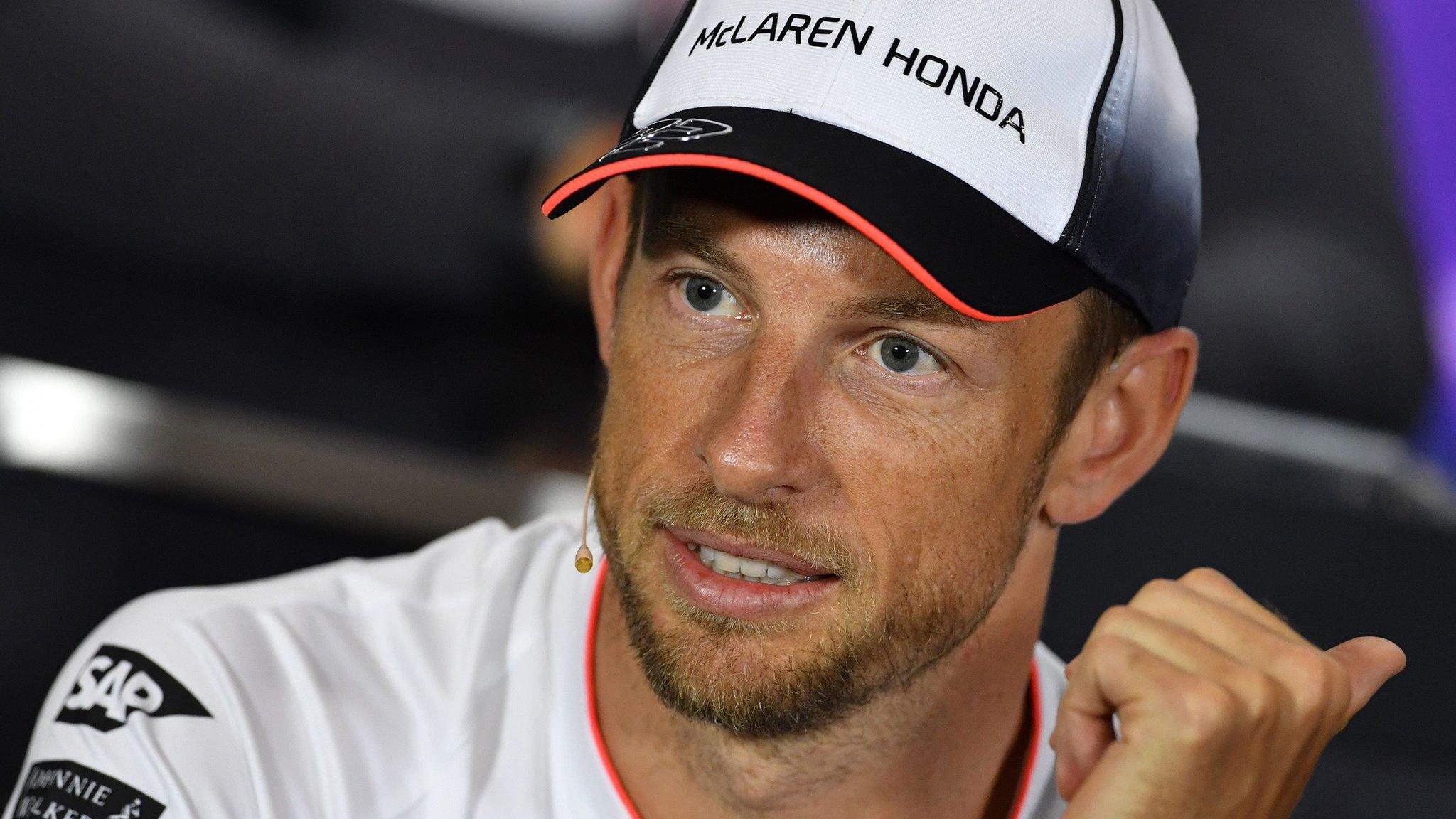
- Published3 September 2016
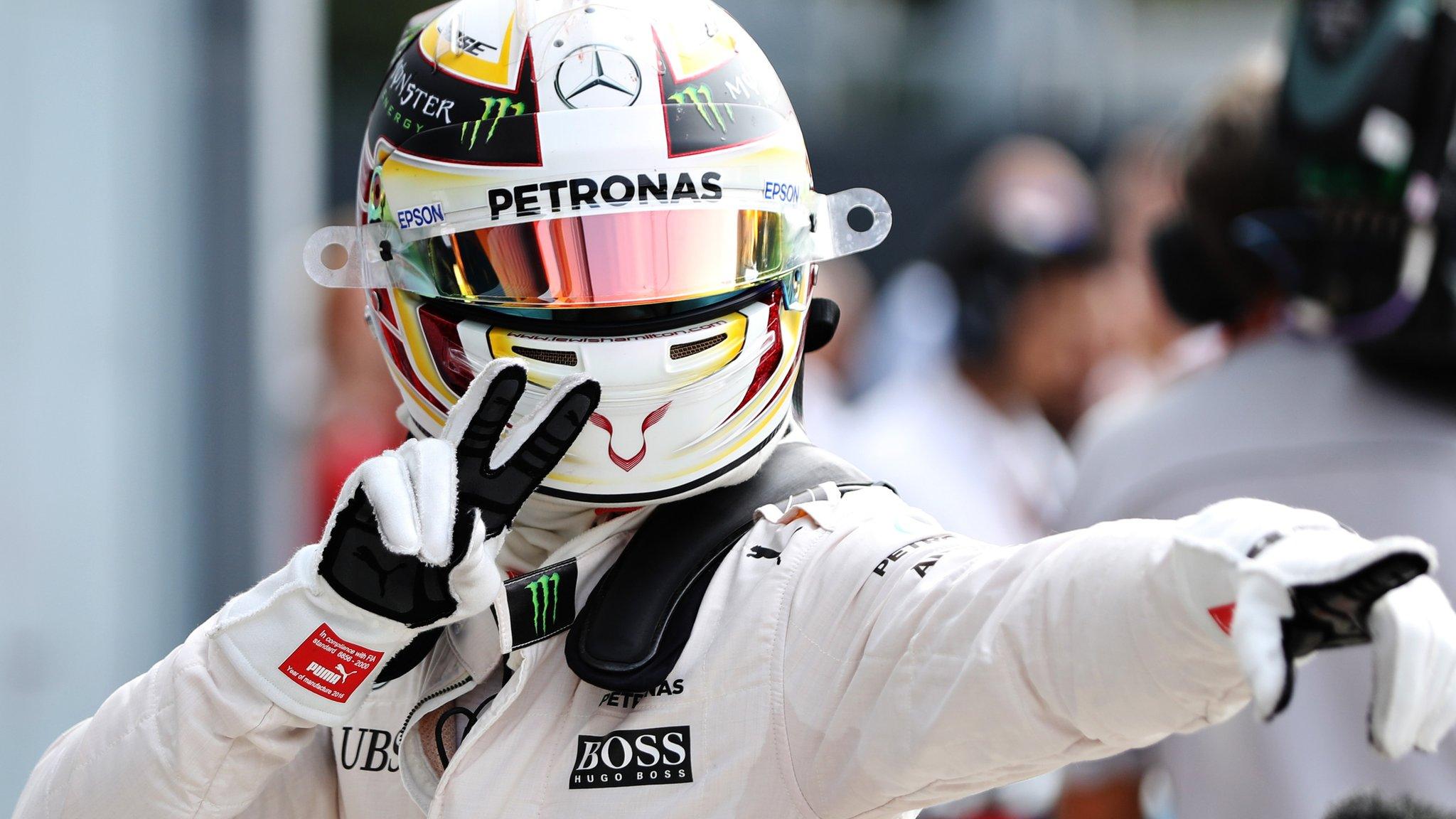
- Published2 September 2016
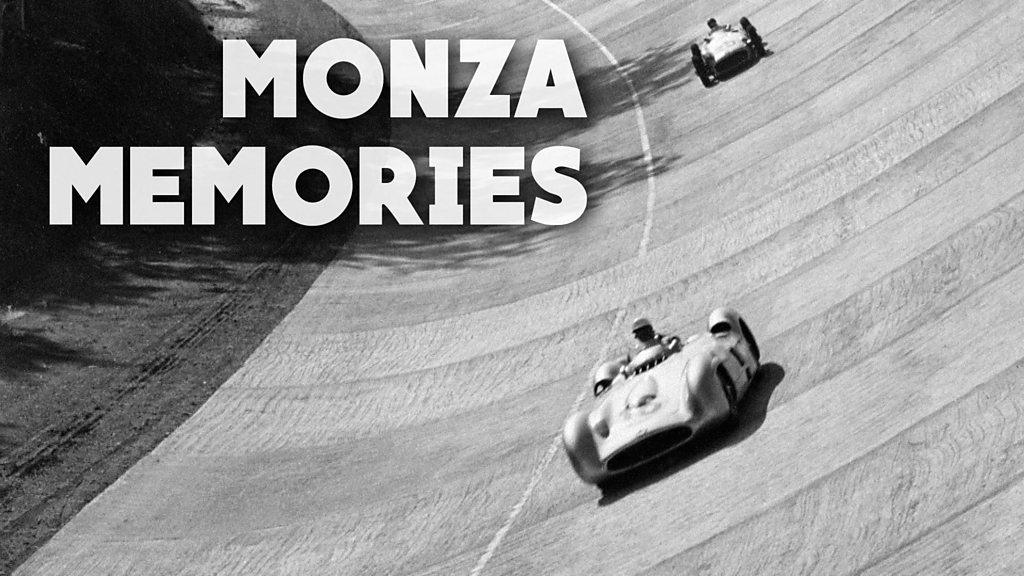
- Published3 September 2016
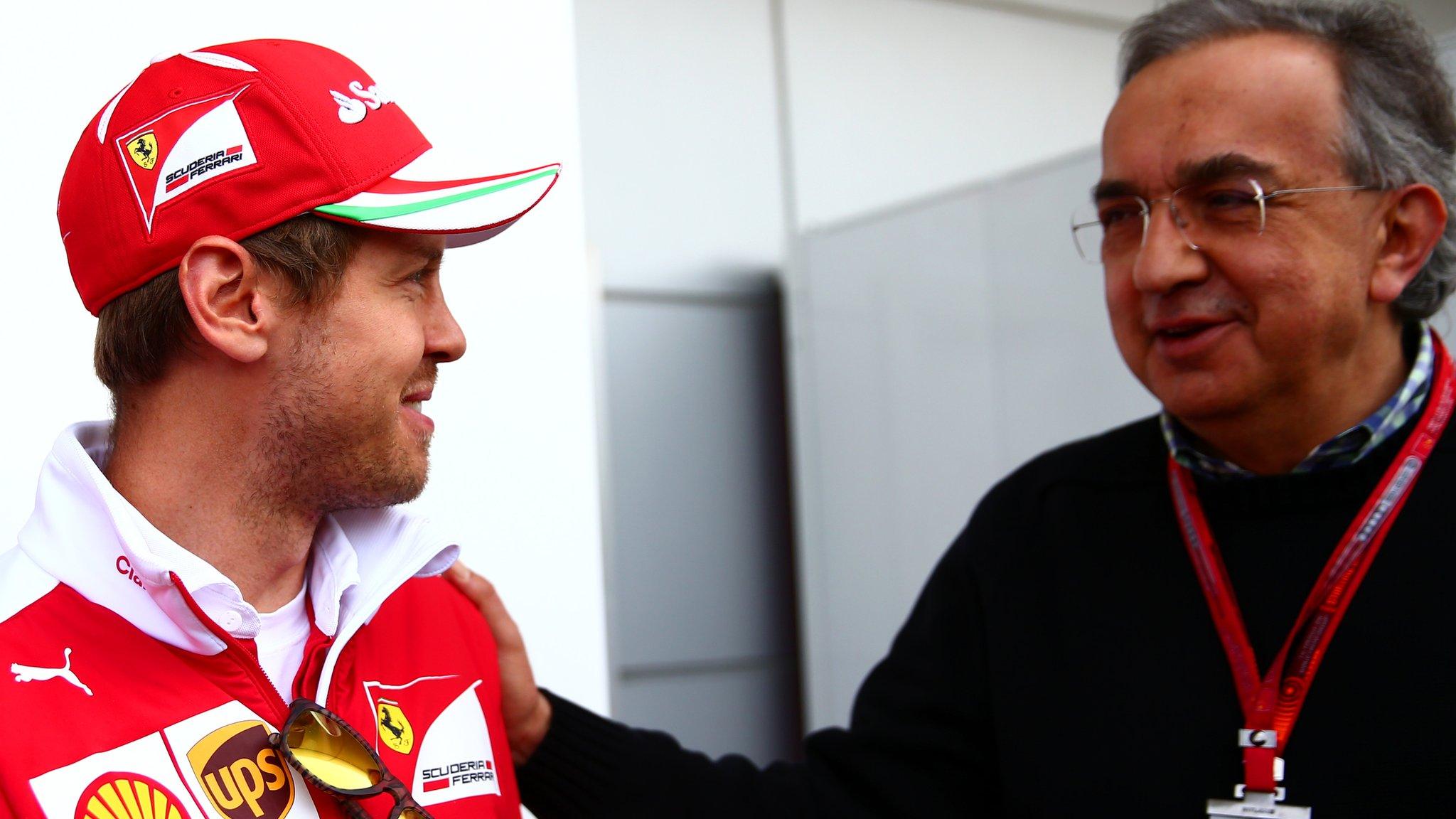
- Published18 December 2015

- Published2 November 2018

- Published26 February 2019
